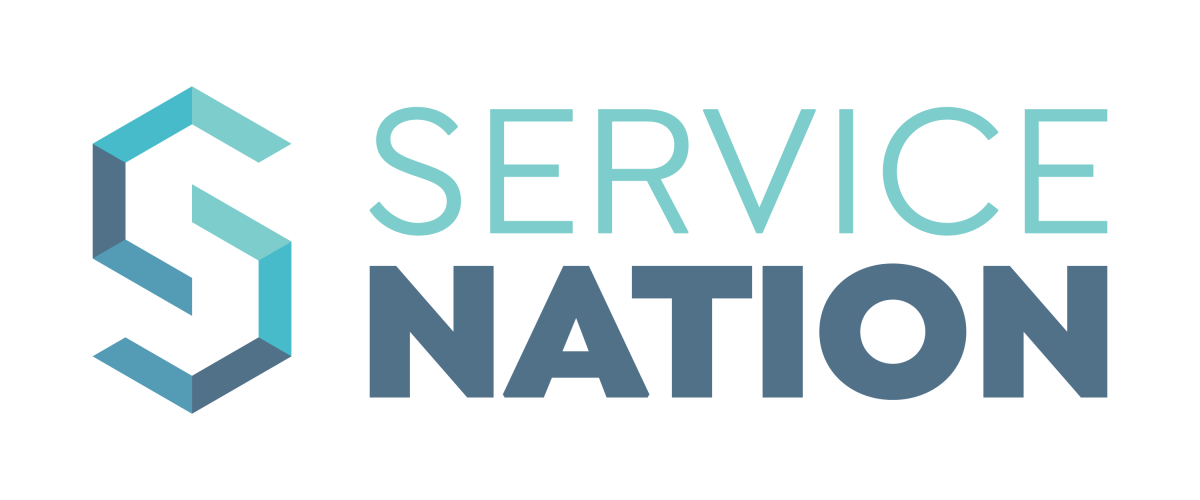Charlie Greer: I wake up every day grateful that, number one, I got good at closing heating and air conditioning sales. And number two, that I fell {inaudible 01:59} into working in modern air conditioning. Because just as I was being hired, Ron Smith was launching a national HVAC franchise out of Modern Air Conditioning. So starting my second week on the job, people were flying in from all around the country to do ride alongs with me and watch me run sales calls, which started me right off in the business as a de facto sales trainer. My sales manager at Modern eventually left to become the sales manager at the Carrier Corporation in Indianapolis. And when I left Modern, he called me and told me that I should take my act on the road conducting seminars and doing ride alongs, and that he could get me all the business that I needed or wanted right off the bat.
Well, he did just as promised. So I was very fortunate in that I didn’t have to struggle as a new upcoming consultant/sales trainer which just goes to show, be really good to your boss and make friends with him because you never know what the future holds. So just to make a little side note of that, I never made a grand announcement about it, but I did decide one day that I would keep my eyes open and any little thing that I could find to do that would make his job easier for him, I did. And I believe that little extra effort paid off. So I do advise employees to keep their eyes open, see if there’s anything that they can do to make their boss’s job easier, and it could well pay off big time for them.
David Heimer: That’s actually really good advice. So, one of the many things that impresses me about you is the amazing thoughtfulness you have about sales. That is, you’ve given a great deal of energy and thought to the art and science of sales. Whenever I ask you a sales question, I always get a detailed, thoughtful and useful response. I’m quite sincere when I say that your devotion and concentration to your profession is impressive. So what is a top sales person doing that a less successful sales person isn’t doing? I know the list may be long, but give me like the top three-ish.
Charlie Greer: Excellence in salesmanship is not a bunch of fancy techniques, psychology, word games, or high pressure. I train people to sell by training them on delivering a superior level of service. The first book I wrote about selling in this business was titled “What The Other Guys Don’t Do”. Successful people do what unsuccessful people are unable or unwilling to do. So what does a superior level of service consist of? Whether you are a sales person or a selling service technician, it starts with actually knowing what you are talking about. Dedication to the business, learning how the equipment operates, and in my case, a special emphasis on airflow and indoor quality. Those two aspects of heating and air conditioning are willfully neglected and are frequently the source of most, if not all, heating and air conditioning problems. You must do a very thorough inspection whether you’re there to run a service call or a sales call. You then draw up a prioritized list in order of importance with subtotals that show the bare minimum that could be done, one or two levels in the middle, and then the ultimate solution.
And you go over this list with absolutely everyone you see. Regardless of where the house is located, the neighborhood, the condition of the home or the yard, whether or not you think they have any money, whether or not you think they like you, whether or not they seem like they want to hear what you are saying or even interested, whether or not it seems like they’re going to buy. You just do that on every single call that you run and you’ll be successful in this business. Additionally, good salespeople are good listeners. You don’t talk people into buying, you listen them into buying. You’re supposed to do only one-third of the talking and most of your talking should just be asking them questions to keep them talking. Usually, the more they talk, the more you learn about them. The more you learn about them, the easier they are to close. Listen long enough and well enough and most people will tell you exactly what to say or do in order to close them. Then the last thing that I will say about listening is that it is important that everyone pay a sincere compliment to every customer or potential customer on every single call. The best, most appreciated compliment you can give anyone, is simply to listen to them. Because people just don’t listen to each other. And when we want to talk about how to set yourself apart from the competition, that is exactly how you set yourself apart from the competition.
David Heimer: Yeah. Really good point.
Charlie Greer: And needless to say, successful salespeople also tend to become avid students of salesmanship. There are three things you have to do to get good at sales. The first one is to practice your salesmanship. And that makes sense, doesn’t it? The second thing that you have to do is practice your salesmanship. The third thing you have to do is practice your salesmanship. Good salespeople are not born, they are made. Now the question is when do you study and practice your salesmanship? Most people in this business spend from three to four hours per day driving between calls. That’s from 750 to 1000 hours per year that you spend behind the wheel of a vehicle. That’s a lot of time. Most people spend that time listening to the radio, listening to music or talking on their mobile phone. Sales is a competition just like sports. And if you want to win in any competition, you must train.
Get your training while you drive between calls. Listening to audiobooks on salesmanship and practicing your presentation, that’s what I did. That’s where I got almost all of my training. Do you know that if you practice your salesmanship for just two hours per workday for one year, that would be 500 hours of practice per year. If this were Taekwondo you were studying, that would be enough time to have gotten your black belt in just one year, which by the way, that’s what I did. And I got my black belt in one year. And just about any black belt can take on four or five white belts at the same time. So if you are a black belt in sales, which you could be one year from now, even if you’re just starting, you would be just about unbeatable in a competitive selling situation. And that’s what’s so great about being in plumbing and heating and air conditioning sales. That’s why I was able to succeed in plumbing and HVAC sales. There aren’t really that many real salespeople in those professions that study and practice their salesmanship. Now I’m not bragging when I say that it’s almost unfair to go up against me because after all the years of study and practice that I’ve done, versus someone who’s not even put much thought at all into salesmanship, how could they possibly compete? Why wouldn’t I win?
David Heimer: Exactly. Thank you for that great answer. I want to turn the attention a little bit to hiring salespeople. When you’re hiring a person for a sales position, what do you look for?
Charlie Greer: If we’re talking about a residential replacement sales position, I require that the individual already be an award-winning in-home sales person of some product, any product. I mean, just salesman of the week, salesman of the month, highest sales in the company, something, anything. It doesn’t have to be national or anything like that, just got some recognition for their salesmanship. Additionally, the individual must have invested some of their own time and money in sales training. That shows an interest in sales and in improving their salesmanship. From there, I require mathematical ability and some mechanical ability. Part of the interviewing process will be for them to describe to me the sales presentation they do in their current position. If they tell me that they don’t really have a presentation because everybody is different and every situation is different, they’re probably not going to be hired. If their presentation is already very similar to mine, they probably are going to be hired.
I helped a friend of mine build his business from the ground up. From a one man shop to a dozen service technicians. I did the recruiting. I only hired service technicians that I felt were going to be good salespeople right off the bat and could take off in a full run. That means I was highly selective in my recruiting. He always had extra trucks waiting and told me that I was too slow in my recruiting, and I wasn’t slow. I was cautious. I say be quick to fire and slow to hire. I really didn’t keep accurate records on this, but I’d venture to say that I probably only hired about one out of every 50 or so applicants that applied. I can tell you this much, the stack of resumes that I have is close to one foot thick, and really, we only hired probably a total of two dozen people out of that.
So to begin with, the classified ad that I would run, it has the job listed as sales technician, plumbing sales technician, HVAC sales technician. I felt that kind of let people know right off the bat that it was a sales job. To be sure, I asked during the interview if they felt like a service technician was a sales position, which I certainly do believe that it is. I would then ask HVAC technicians what their feelings are on indoor air quality products and I would ask plumbers their feelings on water treatment and purification, and if they felt that these things were necessary. And if they feel that these things are necessary, would they be willing to list these products as an option on their recommendation sheets? I would ask them if they ever sold them. I would ask them if they had ever sold a service agreement, and if they did, what was their sales procedure? Try to get them to role play me a little bit.
I’d also ask them if they’d ever had any sales training at all, and if they were opposed to getting additional sales training. I would also describe for them how we would run a call with our over-the-top inspection and the way we listed every single deficiency we saw, and if they felt they would be comfortable doing that. Just a couple of other important points on recruiting is that we require any potential recruits to spend a minimum of one day, if not two days, running calls with our service technicians without pay just to see how we work and to see if they would in fact, enjoy working that way. And lastly, have a couple of female employees interview the potential candidate to get their take on him or her.
David Heimer: Yeah. Sometimes a female interviewer picks up on stuff that a male doesn’t pick up, creepiness factors and stuff like that. Great idea. So sales training – talked about it a little bit already – as you think, and said, I think sales training is incredibly important. Over the course of the year, how much training should a salesperson receive?
Charlie Greer: Well, I already talked of course. So I believe that you should spend most, if not, all of your time driving between calls, focusing on the job, and either listening to audio books on salesmanship or just practicing your presentations. That’s what I did. That’s how I got good at sales. I find that in my friend’s company, one of our goals was to make sure that every customer received the same experience, no matter which service technician ran the call. And I find that every contractor wants the same thing. Now, the question is, what are you going to do to get that? The only thing we could figure out was to train nearly every single day. So four to five days per week, including during the busy season, we trained from an hour to an hour and a half to two hours per day. I have everything all scripted out.
So initially much of it was memorization and scripted role-playing, a lot of which was on a video camera. Once they had all the scripts down, the training was more of a discussion on the calls that they had run the previous day. How everything go? What all was said? What did they buy? How did they close them? What objections did they encounter? How did they respond to them? What they felt they could have done better, how they would have done it better. And I realize that there are people that say, oh, this is way too much on applied time, but I can tell you that it really paid off. Because starting from day number one until the day he sold the company for a profit, six years later, he netted an average of 400 to $500,000, that’s net profit, in his pocket every single year. And his service technicians’ salesmanship is what got him that money.
That’s what’s going to get every contractor that is listening to this, all the money that they make. It is their employees’ salesmanship. So spend some time on it, spend a lot of time on it, you can’t spend enough time on it. As a contractor, your financial success relies heavily on your service technician success as salespeople. And most of them don’t even want to be seen as salespeople, which is a very scary thought. And I feel that sales training is one of the most important things that contractors can provide for their service technicians. You know, everyone is really only in the business to earn a living, to make money. And the way you make money in this business is to sell. So get sales training as much as you can and you’ll make as much money as you can. It’s hard to deny that the more sales training you get, the more sales you make and the more sales you make, the more money you make.
David Heimer: Excellent. Well, Charlie Greer, thank you so much for agreeing to do this with us. This has been fabulous. I think that anybody listening to this is going to get a lot of great information from it. If people want to reach you, what is the best way for them to reach you?
Charlie Greer: There are two ways. The first one is my toll free telephone number, which is not the big deal that it used to be, but it is 1-800-963-4822. Again, for your dialing pleasure, 1-800-963-4822. You’re always invited to email me. That is charlie@charliegreer.com. And you can look me up online, which I do actually have a rather large website with a lot of articles and everything on it, that’s simply charliegreer.com.
David Heimer: Very good. Alright, thanks again. I certainly appreciate you taking the time out to do this. And I look forward to talking to you again in the future.
Charlie Greer: Thank you.
Outro: We’re always looking for good ideas and interviews for our podcast. If you have an idea or maybe you think you should be interviewed, just shoot an email to profilesinprosperity@serviceroundtable.com, that’s profilesinprosperity@serviceroundtable.com. If you think what we’re doing has any value, it would be very helpful if you would give us a great rating on iTunes. Thanks for your support. Hope. See you again soon. Bye.





 (877) 807-0869
(877) 807-0869 Member Login
Member Login

